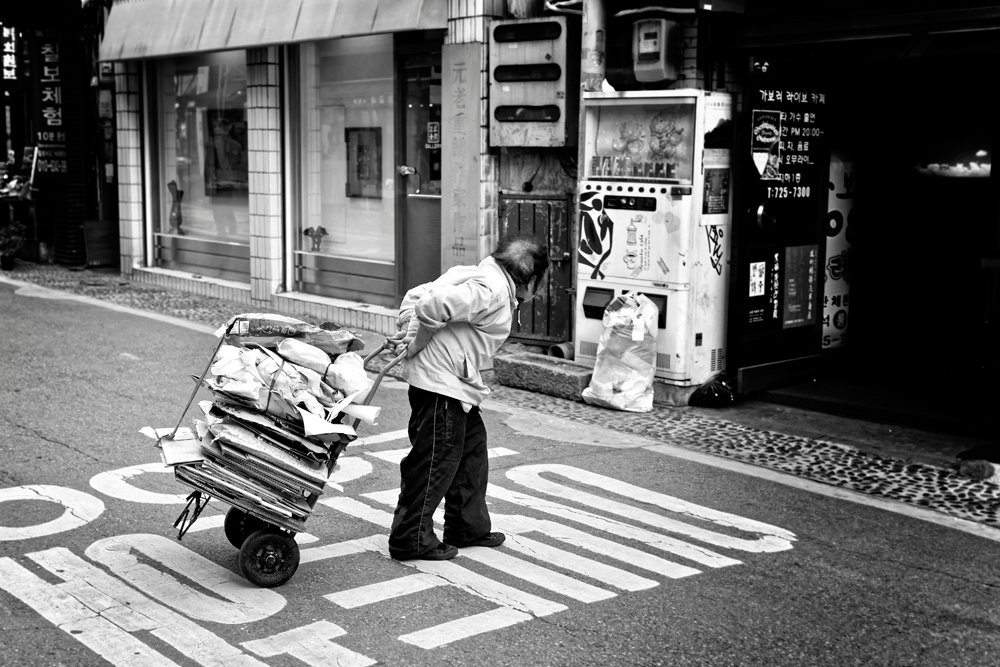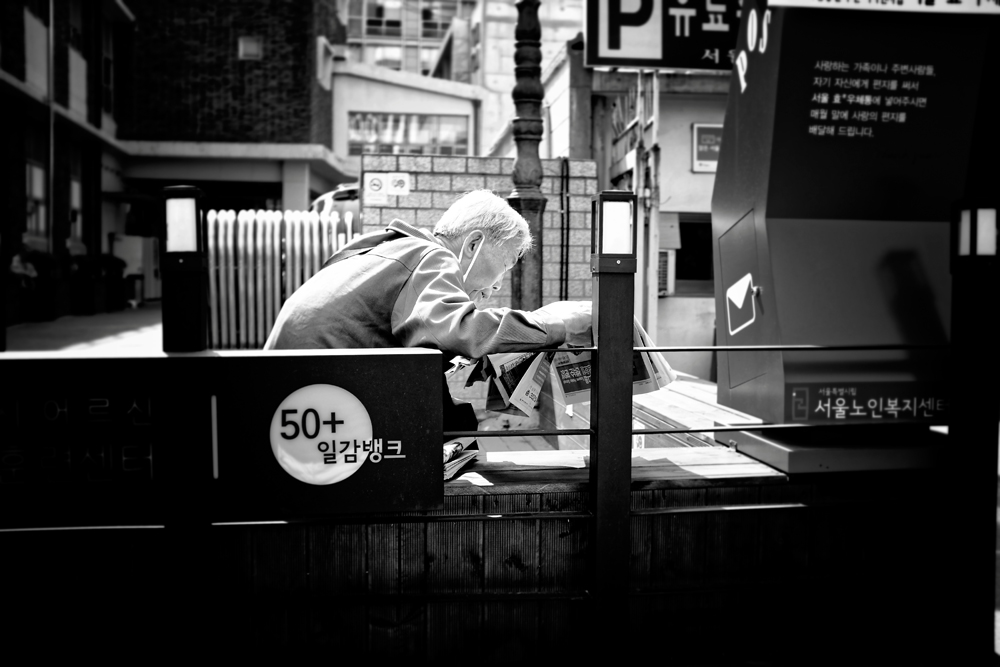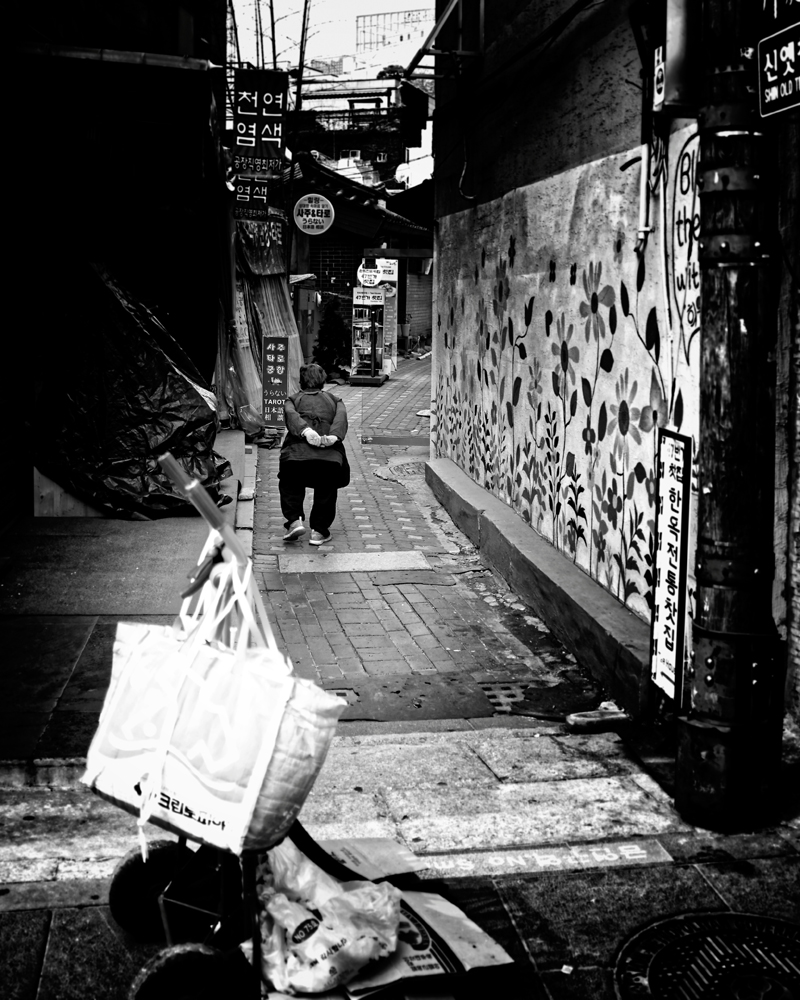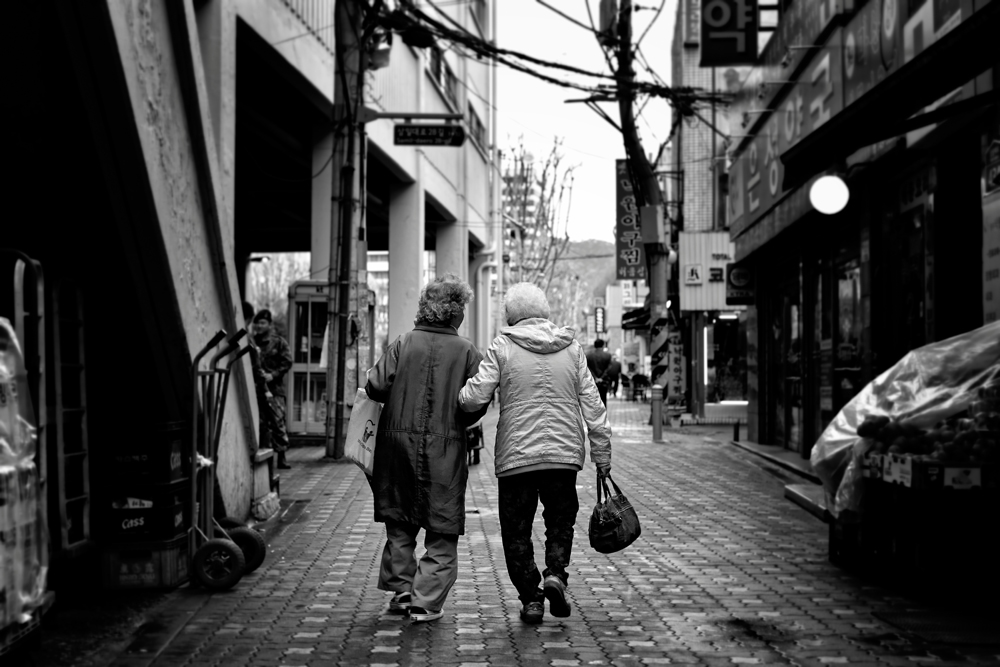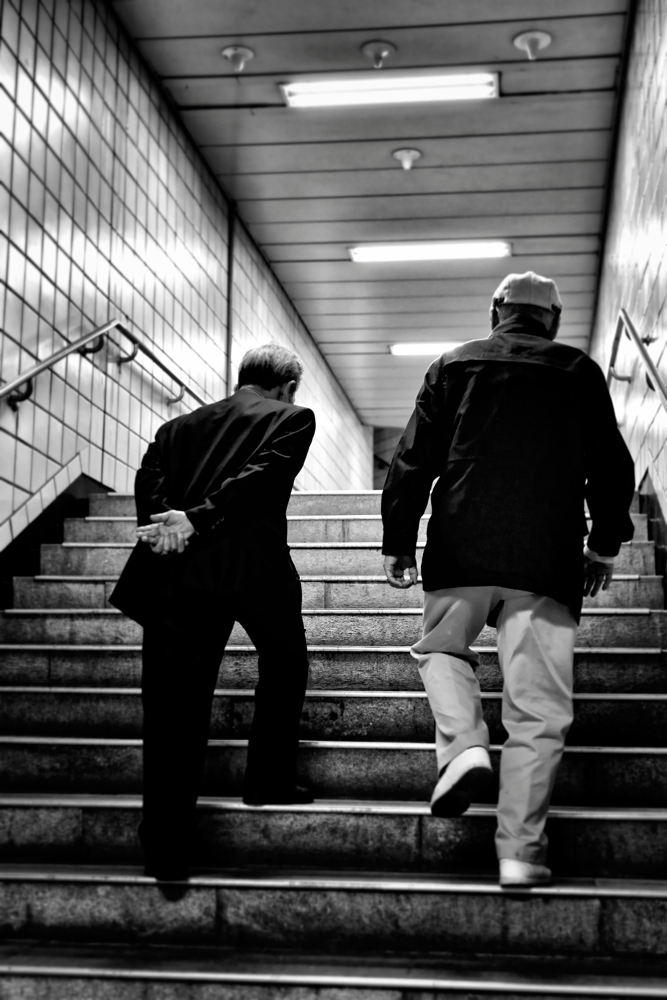Seoul elderly forgotten
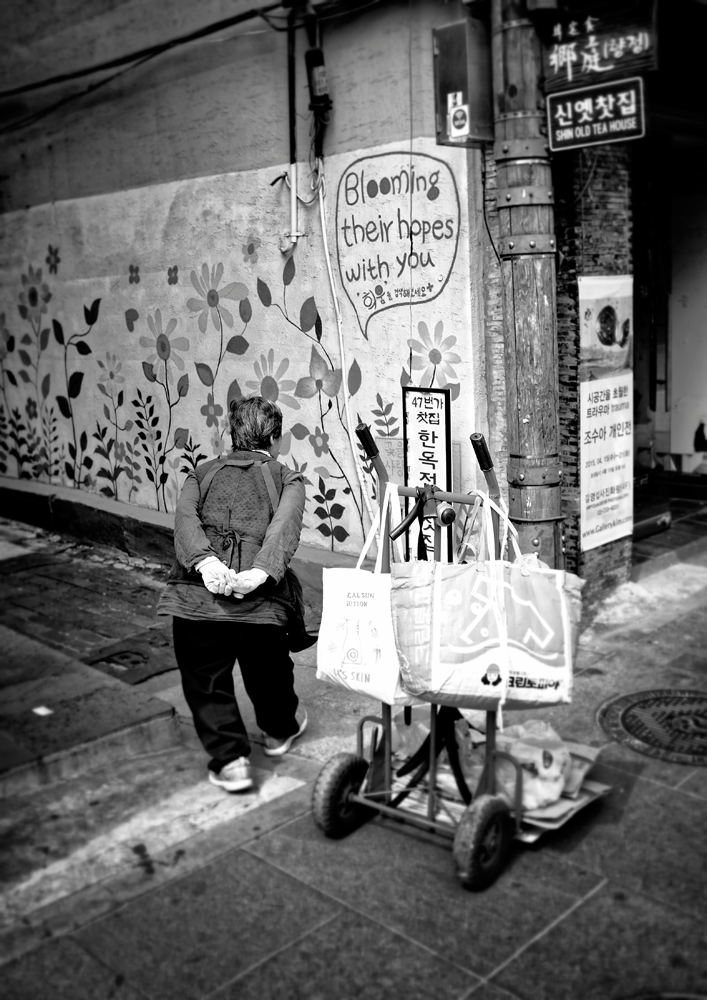
-
PhotographerTed McDonnell
WANDERING the streets of South Korea’s capital of Seoul one quickly appreciates what a cultural and active city it is. There’s little doubt it’s a vibrant world city. Food, the arts and shopping dominate, however, a glaring feature of the city is the number of elderly citizens aimlessly wandering the streets. Half of South Koreans senior citizens live below the poverty line. in 2013, the OECD showed that South Korea rank first amongst 34 nations for impoverish elderly people. A frightening statistic when one considers more than 12% of South Korea’s 50 million population are over the age of 65 — at the same time the country’s birth rate continues to drop alarmingly. One woman in her 70s said that she walked, and walked the city seeking “ujeong†or friendship. “I have no family at home they have moved out of Seoul and staying home is boring. At least I can look at other people on the street, see what they are buying and maybe even get a ‘miso’ (smile).†She at least still has her own small flat. Elderly dependency is worsened by the lack of social welfare support. Elderly woman using prostitution as a means to an end is frequent, however, has moved from parks around Seoul to cafes. The sight of churches handing out 500 WON (equivalent to USD 50 cents) to long lines of elderly citizens is a regular occurrence around Seoul’s suburbs. Due to expensive rents in the South Korean capital, homelessness amongst the elderly has also become a major issue in Seoul. Elderly people are frequently seen begging, sleeping rough or collecting anything of value such as used cardboard boxes to sell to recyclers. More than 50% of South Korea’s homeless people estimated conservatively at more than 200,000 are over 60.


